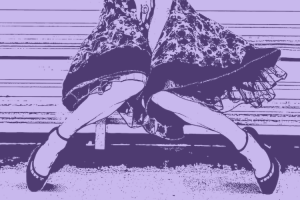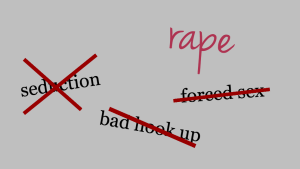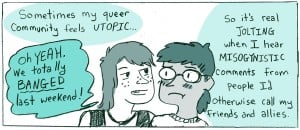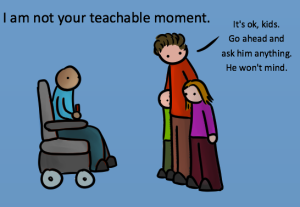I wanted so badly to lie down next to her on the couch, to wrap my arms around her and sleep, but I lacked the courage, and she had a boyfriend. —Looking for Alaska by John Green
Unrequited love, almost a universal experience.
Research by social psychologist Dr. Baumeister found that among the 155 participants, 98% of them experienced one, or both sides, of unrequited love, loving someone who doesn’t return or reciprocate our feelings, on average, once per dating year.
Charlie Brown says, “It can take the taste out of peanut butter.” It can also harm the one loving and the one being loved. Let me explain what it is and how to treat it.
The word unrequited comes from the 15th century requite, meaning “repay or clear up debts.” Unrequited, then, means “not paid back.” No wonder some people have it in their heads that they’re owed something for their love. I’ll get back to that.
First, Bringle, Winnick, and Rydell’s research from 2013 that studied unrequited love’s nature and prevalence. They described unrequited love as five subcategories:
- A crush on someone unavailable, like fan girls to Connor Franta.
- A crush on someone nearby without initiating a romantic relationship, like a co-worker, lab partner, Xander and Buffy.
- Pursuing a love object, Pepe Le Pew enamored with a cat Penelope. He’s enamored with her, but she’s making all sorts of a attempts to get away. Falling upward is part of this subcategory, too, where the pursuant wants someone of higher desirability than offered, kind of like Phantom of the Opera.
- Longing for a past lover, someone you’re familiar with. Maybe you didn’t want the relationship to end in the first place, saudade. Maybe what leading love expert, Dr. Helen Fisher, calls “frustration attraction,” where you don’t like them, but because they don’t like you, the love gets turned up.
- An unequal love relationship where partners love each other differently, in different ways, in different degrees. That’s Peeta and Katniss.
There certainly isn’t a shortage of examples of unrequited love, Cyrano and Roxanne, Edward and Kim, Olivia, Orsino, Viola, Thomas Barrow and James Kent, Martha and The Doctor, Snape and … Ah, ah. I’m not spoiling that one.
What we are missing is the reality of the romance. The same study that delineated between these five types of unrequited loves says it is, quote, “Not a good simulation of true romantic love, but an inferior approximation of that ideal.” Unrequited love in all its forms is less passionate, less committed, less practical than mutual, equal love, as well as more tumultuous. The French referred to la douleur exquise, or the heart wrenching pain or wanting someone you cannot have.
Let’s say this doesn’t sound appealing to you. How do we avoid it? How do we cure it?
Two thousand years ago, the Roman poet Ovid wrote an 815-line answer called “Remedia Amoris,” or “the cure for love.” He writes, “You could not change the commands of your heart,” and suggests rest, travel, abstaining from alcohol, enjoying the countryside, enjoying multiple lovers, and not reading love poems. Great list, Ovid.
I would add introspection. How does unrequited love serve you? Is this a pattern, maybe an ambivalent anxious attachment pattern?
Sometimes we choose people who will not, or cannot, love us simply to have control over our own rejections. Sometimes in feeling unlovable, we look for people who are emotionally unavailable to fulfill our own self-doubt.
Check yourself here. Then, cultivate compassion. Your experience is very human. Unrequited love, as painful as it is, does mean that you’re capable of loving. Find friends and volunteer opportunities who want this love. Be of service to others that are struggling. Seek the help of a professional.
Laughing is one of the cheapest and fastest ways to treat co-dependence, or a sort of relationship addict, where you rely on others to feel better. Laughter helps to detach from the relationship feel goods, because you have the laughing feel goods. Acknowledge that you’re going through a challenging experience and load up on self-care.
Physically sick? You’d get rest and take it easy. Love sick? Same things, except you don’t need to quarantine yourself. You can celebrate you and your independence. Take a vacation from enamoring. Go on the trip that Ovid prescribed, learn a new language, have an adventure. There’s more ideas in the description.
Unrequited love is ultimately love. The simplest solution I have is to love the other person just as they are, a human unable to change the commands of their own heart.
Dr. Baumeister found that the pursued person experiences even more frustration, bewilderment, guilt, anger, and anxiety than the pursuer. Unrequited love can be traumatic to the one being loved. Even more so in cases where there’s harassment and intrusion like, “Why don’t you love me? What can I do to make you love me?”
If you’re the recipient of unrequited love, lots of self-care to you, too. Ask for help. Keep people around you who can look out for you and set boundaries. Meet with a therapist, call a hotline, tell your own silly jokes. If the person who likes you isn’t a threat, be honest. Tell them you don’t feel the same way, and then give them space, so they can grieve. It’s not your fault. You don’t owe them anything. Not an explanation, not an apology, or a relationship.
Despite the etymology of unrequited suggesting you owe something, you don’t. Our culture is riddled with examples of boy falls in love with girl, boy pursues anyway. I’m speaking statistically, not heteronormatively. We have examples of the chase, the hunt, and the wooing, but not so many of the rejection.
Usually I say stay curious, and hope that you go investigate on your own, maybe examples of rejection. Today, though, my hope is that we all become healthy examples of rejection. That we reject with confidence and we receive those rejects with grace. That we create for our communities permission to be loved, without owing anything in return. That we are the evidence that unrequited love can be natural, without being hurtful.
Thank you to everyone who participated in Project for Awesome, our Patreon supporters, viewers of this channel, I love you. If you can afford to give to Sex Education on Patreon, I have a special something for everyone who signs up by December 13st to give $5 or more a month for 2016.




















